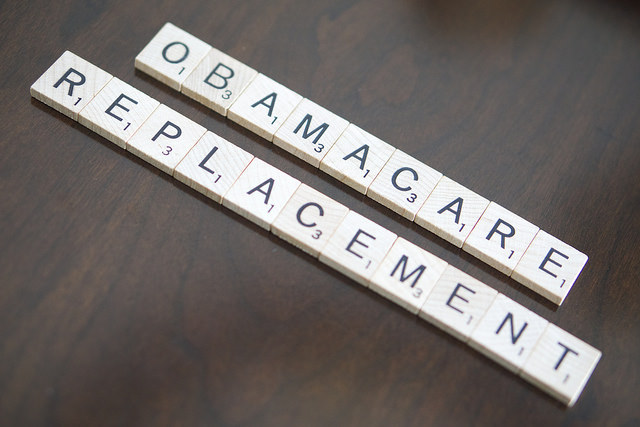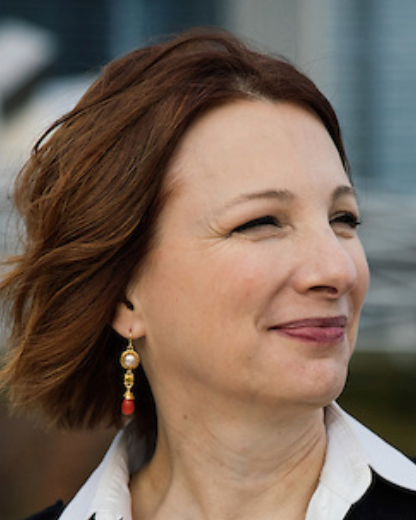Three Reasons White Evangelicals Hate Obamacare
Last year, Republican lawmakers—with the support of many white evangelical Christians—found ways to undermine Obamacare
 Last year, Republican lawmakers—with the support of many white evangelical Christians—found ways to undermine Obamacare. In Iowa, where evangelicals are a potent force, the governor recently approved legislation allowing insurers to sell cheaper plans that don’t comply with all Obamacare regulations. Opposition to Obamacare, or the Affordable Care Act (ACA), by evangelicals is puzzling to those who consider access to health insurance a moral imperative. Supporters tend to interpret resistance to the ACA as indifference or selfishness or racism. Why else would people not care about the millions who will lose their insurance as the ACA is whittled away?
Last year, Republican lawmakers—with the support of many white evangelical Christians—found ways to undermine Obamacare. In Iowa, where evangelicals are a potent force, the governor recently approved legislation allowing insurers to sell cheaper plans that don’t comply with all Obamacare regulations. Opposition to Obamacare, or the Affordable Care Act (ACA), by evangelicals is puzzling to those who consider access to health insurance a moral imperative. Supporters tend to interpret resistance to the ACA as indifference or selfishness or racism. Why else would people not care about the millions who will lose their insurance as the ACA is whittled away?
The French have a saying: “to understand everything is to forgive everything.” Forgiveness is not the goal of this article, but understanding may be possible.
This matters because one in four Americans are evangelicals, and the majority are white. Most are also working- or middle-class (in a 2014 Pew survey, 86% had a combined family income of less than $100,000). A significant number have seen their insurance premiums rise under the ACA, so economics may play a role in their negative reactions. In addition, over the past few decades strategic political actors have succeeded in forging a tight bond between conservative politics and evangelicalism. But in addition to these factors, white evangelicals tend to support pushing back certain provisions of the ACA, or eliminating it altogether, for at least three reasons particular to their religious group.
First, some white evangelicals see themselves as engaged in an epic struggle to rescue souls. For them, suffering, including physical suffering caused by illness, can “drive one to the Cross”—the only path to eternal life in heaven. Desperate for comfort, the sick may spiritually cast themselves at the feet of the crucified Christ where, overcome by faith in his atoning work on the Cross, they may be born again and their immortal souls saved for eternity.
To secure a permanent place at God’s side is far more important than any short-lived torment to the body. From this perspective, then, the greatest kindness one can show others is to help them reach the salvation of the Cross.
Such a crucicentrist view on compassion explains puzzling statements by white evangelicals like Mark Green, a Tennessee state senator. “Sickness,” Green told a church group, “is one of the main avenues that bring people to religion.” In the Gospels, he said, “every person who came to Christ came to Christ with a physical need. It was either hunger or a disease.” When the government created the ACA it did a “great injustice” because, Green explained, by helping people regain their health, it had limited “the Christian church’s role” and robbed sick individuals of the opportunity “to come to a saving knowledge of who God is.” People who fell ill would now look “to the government” instead of to God.
How common is crucicentrism? A study in 1996 indicated that more than one in four American and Canadian evangelicals held such a view. Crucicentrist evangelicals are not insensitive to the pain endured by sick people without health insurance. Green, for one, wanted to open free clinics throughout his home state—in churches.
Second, the belief by many white evangelicals that the government’s role does not extend to healthcare is a deeply rooted attitude. According to George Marsden’s classic work, Fundamentalism and American Culture, the economic individualism and disciplined self-reliance of evangelicals can be traced back to the earliest strands of their pietist and revivalist heritage.
For many of today’s white evangelicals, whose spiritual ancestors joined other Americans to fight the British for sovereignty over their own affairs, freedom from state control has achieved quasi-sacred status.
An essay by David Barnett illustrates the antipathy of white evangelicals to what they view as state meddling. Barnett is director of communications for The FAMiLY LEADER, an Iowa-based organization with ties to Focus on the Family. In Barnett’s telling, family, church, and government have differing spheres of responsibility. Citing Romans 13:4, I Peter 2:13-14, and the Preamble to the Constitution, he writes that the role of government is to protect borders, keep citizens safe from foreign threats and violence at home, “execute justice, and encourage righteous behavior.” The government is welcome to encourage churches, individuals, and companies “to care for the needy,” but it overreaches when it takes up this care directly because when it does, it “can’t help but intrude” on people’s lives.
The ACA’s individual mandate—fines imposed on individuals who opt out of health insurance—is thus problematic for evangelical Christians like Barnett. Such fines, designed to prevent younger, healthier people from opting out, exert unacceptable control over how people spend their earnings or care for their own person and family. In part because of white evangelical advocacy, Congress has eliminated the mandate starting in 2019. As a result, the nonpartisan Congressional Budget Office calculates that, by 2027, 13 million fewer Americans will be insured.
White evangelicals argue for economic individualism and disciplined self-reliance based on key scriptural passages. However, Lydia Bean, who has researched evangelical identity in the United States and Canada, finds that although Canadian evangelicals draw on the same theological resources as their American counterparts, they do not insist on individualism, self-reliance, or freedom from government influence to the same extent.
Overall, evangelicals in Canada are more supportive of legislated efforts to address income inequalities. Despite recent backlash against certain welfare programs, Canadian evangelicals are likely to see themselves as members of a single society. They generally view redistributive social policies like universal health insurance as expressions of national solidarity.
Studies of black American evangelicals also underscore the cultural distinctiveness of white American evangelicals. Overall, black evangelicals have a stronger sense of solidarity with the poor than their white counterparts and are more likely to support public aid programs.
Based on her research, Bean writes that white American evangelicals tend to subscribe to “accountable” individualism: individuals are accountable to God for their self-sufficiency and cannot sidestep this responsibility by shifting the blame to others, including to systemic causes. For some evangelicals, redistributive social policies such as the ACA not only undermine self-reliance and independence, they are morally corrupting.
Like state senator Green, who objected to the ACA but wanted to open free clinics, white evangelicals may object to the welfare state, but they have not abandoned the poor. They give more generously to charities than other Americans. Still, they tend to prefer a “relational” strategy to helping others. In the case of health insurance, this strategy sometimes takes the form of cost-sharing ministries like Samaritan Ministries.
Those who join sharing ministries send checks directly to designated families to help them pay their medical bills. The New York Times’s Abby Goodnough reports that the ministries provide “no guarantee” that these checks will reimburse expenses fully. Instead, “members are advised to trust that God will provide.” Though some members like Sarah Doyle qualify for subsidized insurance policies through the ACA, they choose cost-sharing ministries instead. Doyle explains that she gets the sense of “loving on somebody instead of just paying … premiums.”
Members of cost-sharing ministries are exempt from the individual mandate requirement and do not pay a fine to the IRS. In this way, the ministries have an added benefit for white evangelicals; they provide them with a way to protect their religious communities from interference by the state. During the six years that followed the passage of the ACA in 2010, membership doubled to nearly two hundred thousand.
Third, white evangelicals oppose the ACA’s birth control mandate because, by eliminating the risk of pregnancy, it could encourage unmarried couples to commit the sin of fornication. Unlike the Catholic Church’s categorical rejection of the use of contraceptives, white evangelicals are not opposed to the use of contraceptives by married couples. Like Catholics, though, they oppose the ACA’s coverage of abortifacients like the morning-after pill. This class of drugs causes chemical abortions by preventing the embryo from attaching to the uterine wall. A majority of white evangelicals disapprove of these drugs.
However, resistance to the ACA by white evangelicals is shifting. A 2014 Pew Research survey showed that among evangelicals born before 1981, one in four (27%) hold that bigger government and more services are preferable. Among millennials—born between 1981 and 1996—this number jumps to half (47%). And, whereas only one in three (36%) pre-millennial evangelicals believe that government aid does more good than harm, nearly half (45%) of millennials are in favor of such aid. Still, when it comes to abortifacients, evangelicals, regardless of age or generation, share similar objections.
As more millennials assume positions of leadership within the evangelical community, and they vote in greater numbers, their higher level of support for government-sponsored programs may translate into increased support for the ACA, including the individual mandate. At the same time, healthcare sharing ministries are likely to grow in popularity, and resistance to ACA reimbursement for abortifacients will continue—even among millennials.
Resources
- Barnett, David. “7 Things the Bible Says About Obamacare.” The FAMiLY LEADER. Accessed March 5, 2018.
- Bean, Lydia. The Politics of Evangelical Identity: Local Churches and Partisan Divides in the United States and Canada. Princeton University Press, 2014.
- Burton, Tara Isabella. “How birth control became part of the evangelical agenda.” Vox. October 7, 2017.
- Diamant, Jeff, and Becka A. Alper. “Though still conservative, young evangelicals are more liberal than their elders on some issues.” Pew Research Center. May 4, 2017.
- Goodnough, Abby. “Christians Flock to Groups That Help Members Pay Medical Bills.” The New York Times. March 10, 2016.
- Hiemstra, Rick. “Counting Canadian Evangelicals.” Centre for Research on Canadian Evangelicalism. 2007.
- Leonard, Kimberly. “Christians Find Their Own Way to Replace Obamacare.” U.S. News & World Report. February 23, 2016.
- Marsden, George M. Fundamentalism and American Culture. Oxford University Press, 2006.
- Mukherjee, Sy. “The GOP Tax Bill Repeals Obamacare’s Individual Mandate. Here’s What That Means for You.” Fortune. December 20, 2017.
- Pew Research Survey. “Evangelical Protestants.” Religious Landscape Study. 2014.
- Sussman, Anna Louie. “Burden of Health-Care Costs Moves to the Middle Class.” The Wall Street Journal. August 25, 2016.
- Tritten, Travis J. “Public health care stops people from being saved by Christianity.” Washington Examiner. May 4, 2017.
- Turner, Laura. “How Over A Million Christians Have Opted Out Of Health Insurance.” BuzzFeed. June 1, 2017.
- Weixel, Nathaniel. “Iowa’s governor signs law allowing plans outside ObamaCare.” The Hill, April 2, 2018.
Photo Credit: Kevin Simmons/Flickr (cc)
 Author, Myriam Renaud, is a PhD Candidate in religious thought at the University of Chicago Divinity School. She is also Principal Investigator and Project Director of the Global Ethic Project at the Parliament of the World’s Religions. She is the organizer of an upcoming conference (April 23-24) at the Divinity School, “Grappling with the Global Ethic: Multi-Religious Perspectives on Global Issues,” which will bring together scholars of various religious traditions to engage the Global Ethic, the signature document of the Parliament of the World’s Religions. Author, Myriam Renaud, is a PhD Candidate in religious thought at the University of Chicago Divinity School. She is also Principal Investigator and Project Director of the Global Ethic Project at the Parliament of the World’s Religions. She is the organizer of an upcoming conference (April 23-24) at the Divinity School, “Grappling with the Global Ethic: Multi-Religious Perspectives on Global Issues,” which will bring together scholars of various religious traditions to engage the Global Ethic, the signature document of the Parliament of the World’s Religions. |
SIGHTINGS is edited by Brett Colasacco (AB’07, MDiv’10), a PhD candidate in Religion, Literature, and Visual Culture at the University of Chicago Divinity School. Sign up here to receive SIGHTINGS via email. You can also follow us on Facebook and Twitter.


